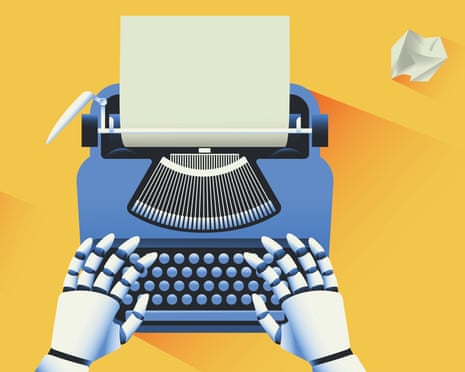Meta’s Bold Investment: Pouring Billions into AI Innovation
Mark Zuckerberg announced in April that the company would significantly increase its capital expenditures in the coming year to maintain its position in the highly competitive field of artificial intelligence. He followed through with this commitment last week by establishing a $15 billion “AI superintelligence” team, which is rumored to include nine-figure salaries and a 49% investment in Scale AI. Among the notable hires was Scale’s 28-year-old founder, Alexandr Wang, a former roommate of OpenAI’s Sam Altman.
Prior to Meta’s investment, Scale already had most of the top players in AI as clients, and some were apprehensive about the implications of this deal. As Bloomberg summarized, “Scale AI’s Wang Brings to Meta Knowledge of What Everyone Else is Doing.” Google, Scale’s largest client, expressed concerns, reportedly indicating that their partnership would end due to this development, according to Reuters.
A Silicon Valley analyst characterized the announcement as a strategy of “a wartime CEO.” Superintelligence refers to an AI that can outperform humans across all tasks, while the current state of AI has yet to reach artificial general intelligence (AGI), which denotes a human-level performance across a broad spectrum of activities. Meta’s efforts to leapfrog the current advancements and focus on superintelligence appear to be an attempt to reclaim its leadership position in AI following significant strides made by competitors like OpenAI and Google, as well as the lackluster return on Meta’s substantial investment in the Metaverse.
While the scale of this move seems to mark a decisive entry into the AI race, Meta is still catching up, as its latest AI models fall short compared to its competitors. In April, the company released a model tailored to gaming benchmarks, indicating a level of urgency. With its massive investment and the formation of a high-profile team, Meta is effectively buying its position in the AI landscape.
The Week in AI News
- Thousands of UK university students caught cheating using AI
- Disney and Universal sue AI image creator Midjourney for copyright infringement
- Can ChatGPT assist in managing your finances?
- Researchers develop AI tool that restores age-damaged artworks within hours
- Keir Starmer addresses technology’s potential for a ‘better future’ amidst AI fears
Wikipedia’s Response to AI Integration
Last week, Wikipedia halted a test of an AI-driven article summarizer following backlash from its editors, who contribute to the encyclopedia. The AI-generated summaries were to be displayed at the top of pages, preceding introductions crafted by humans. The trial lasted two weeks and was available to around 10% of users opting into the mobile version of Wikipedia.
The feedback received was overwhelmingly negative, according to the nonprofit Wikimedia, with one editor describing the initiative as “a truly ghastly idea.” Many expressed concern over potential inaccuracies and the impact on Wikipedia’s credibility. A consensus among editors leaned towards keeping AI out of the platform, fearing that such mistakes would undermine its reliability.
“We’re grappling with the balance between AI and Wikipedia. While some minimal AI integrations already exist, the question remains: ‘What distinguishes human-generated content from robotic output?’” said Pacita Rudder, executive director of Wikimedia New York City. Discussions on this topic are ongoing within the Wikipedia community.
In contrast, Reddit has opted for a more commercial approach, having begun charging for access to its application programming interface (API) earlier this year. Reddit’s extensive archive of posts benefits AI companies that require large datasets for training models like ChatGPT. This move has led to user dissatisfaction, resulting in widespread protests among moderators and users alike. Despite user opposition, Reddit executives chose to prioritize financial gains over community concerns.
Shortly after Wikipedia canceled its AI test, the Wikimedia Foundation organized an in-person “edit-a-thon” at the United Nations, focusing on the history of the organization. The activity, part of the UN’s Open Source Week, encouraged collaboration among both new and seasoned editors, showcasing the proactive engagement within the Wikipedia community.
Rudder emphasized the importance of building community connections: “It’s community, right? There’s a misconception that a lot of Wikipedia editors are alone in their basements, typing away, but that’s not the case.” She also highlighted how this event marked a vibrant gathering in contrast to the typical solitary editing experience.
Wikipedia’s vast text corpus plays a fundamental role in training the majority of large language models. While it has a revenue-generating model through Wikimedia Enterprise, it remains a non-profit. Unlike Reddit’s aggressive monetization strategy, Wikipedia emphasizes human contributions and community feedback, as evidenced by its decision to roll back certain AI features.
Swirls Online: ‘Catnip for Rightwing Agitators’
US immigration authorities are deploying drones capable of surveillance during protests in Los Angeles.
The software utilized for monitoring immigrants is deeply intertwined with the LAPD.
Apple’s Walled Garden Transforms from Eden to a Pen
Recently, Apple hosted its annual developer conference, WWDC, where the spotlight fell on the redesign of its iPhone Operating System (iOS), now referred to as “liquid glass.” The new virtual buttons on iPhone screens appear transparent, allowing images behind them to slightly warp as though viewed through a magnifying glass. This design aesthetically echoes the colorful Macs of yesteryears, encased in translucent and playful plastic.
Although the refreshed appearance is visually appealing, it also feels somewhat uninspiring. As machines increasingly fabricate entire movies and anticipate hurricane paths, the color of my phone’s interface seems trivial.
There were additional updates as well, including the incorporation of live translation features for FaceTime calls. This enhancement promises to improve conversations with family and friends across distances. However, the overall updates lacked the excitement that many had hoped for. In recent years, iPhone updates have appeared more incremental compared to transformative advancements like the introduction of 3G connectivity in 2008. Apple’s updates, in contrast to the dynamic Android ecosystem, seem to be lagging behind.
I once met a venture capitalist in San Francisco who, while we talked, didn’t even know which version of the iPhone he was using. Apple showcased few new AI capabilities compared to its competitors. Companies like Google and Samsung are integrating AI into mobile experiences at an astonishing rate. For example, live translation has been a feature of the Android operating system for years. Google’s Pixel Bud headphones can translate spoken conversations directly, a function that AirPods currently lack. Weekly, Google introduces intriguing, if occasionally eccentric, AI features, as reported recently by the Verge regarding their Audio Overviews for specific search queries.
In a post-conference analysis, Gizmodo suggested that Apple understands AI might not be the priority for average users, but that sentiment could be contested, especially considering ChatGPT’s robust user base. Still, the announcements felt lacking in creativity. If Apple aims to retain users within the iPhone ecosystem, it must provide features that are as captivating, if not more so, than those offered by competitors.
Google recently unveiled an updated operating system, while Samsung hinted at new functionalities for its forthcoming generation of folding phones. It’s well-known in tech journalism that Apple-related articles generally attract more attention than those about Android devices, despite a larger global share for the latter. This phenomenon is a topic for another discussion, yet it underscores why Apple’s Liquid Glass interface received significantly more buzz than Android updates, which, as of now, appear to be more cosmetic than substantive.
The newest version of Samsung’s folding phone raises an important question: amid my complaints regarding the lack of excitement in new iPhones, what exactly do I want from a smartphone? While I once owned a folding Motorola Razr that was practical for communication, the innovative form factor didn’t drastically improve my user experience.
Similarly, Google’s new AI functionalities provoke the same contemplation. Although there’s no universal agreement on the demands of most users regarding AI-enhanced devices, it’s clear that innovation has to occur to avoid stagnation. Currently, it feels like Apple is not presenting groundbreaking features that provoke genuine interest. While an audio summary function for search results might not be essential for me, the concept is intriguing, particularly for visually impaired individuals. In contrast, Siri continues to struggle with functionalities like controlling Spotify and providing accurate notification summaries.
As a long-time iPhone user for approximately 15 years, this might be the turning point to explore the shiny array of features offered by Android. However, I find myself trapped within Apple’s ecosystem of hardware and apps, a protective garden that is beginning to resemble a restrictive enclosure.
The Wider TechScape
- Big tech’s involvement in Gaza has led Muslim workers to confront spiritual dilemmas.
- What inquiries do you have regarding the impact of smartphones on children?
- Musk expresses regret over certain remarks regarding Trump.
- The Trump Organization reveals a $499 gold phone, stirring new concerns about conflicts of interest.
- The founder of 23andMe successfully regains control of the bankrupt DNA testing firm.
- An entrepreneur faced humiliation when London Tech Week denied entry to her and her baby.
- Expert recommendations on the best Apple Watches for 2025: what’s worth your investment?






